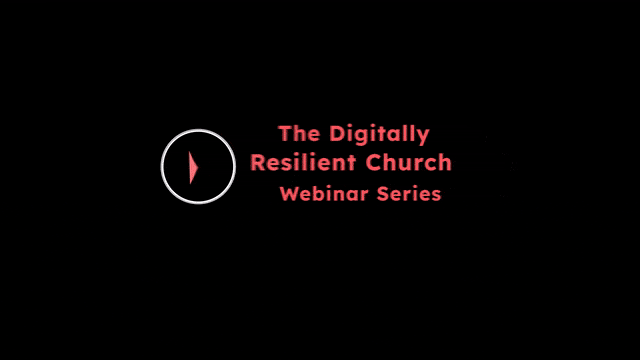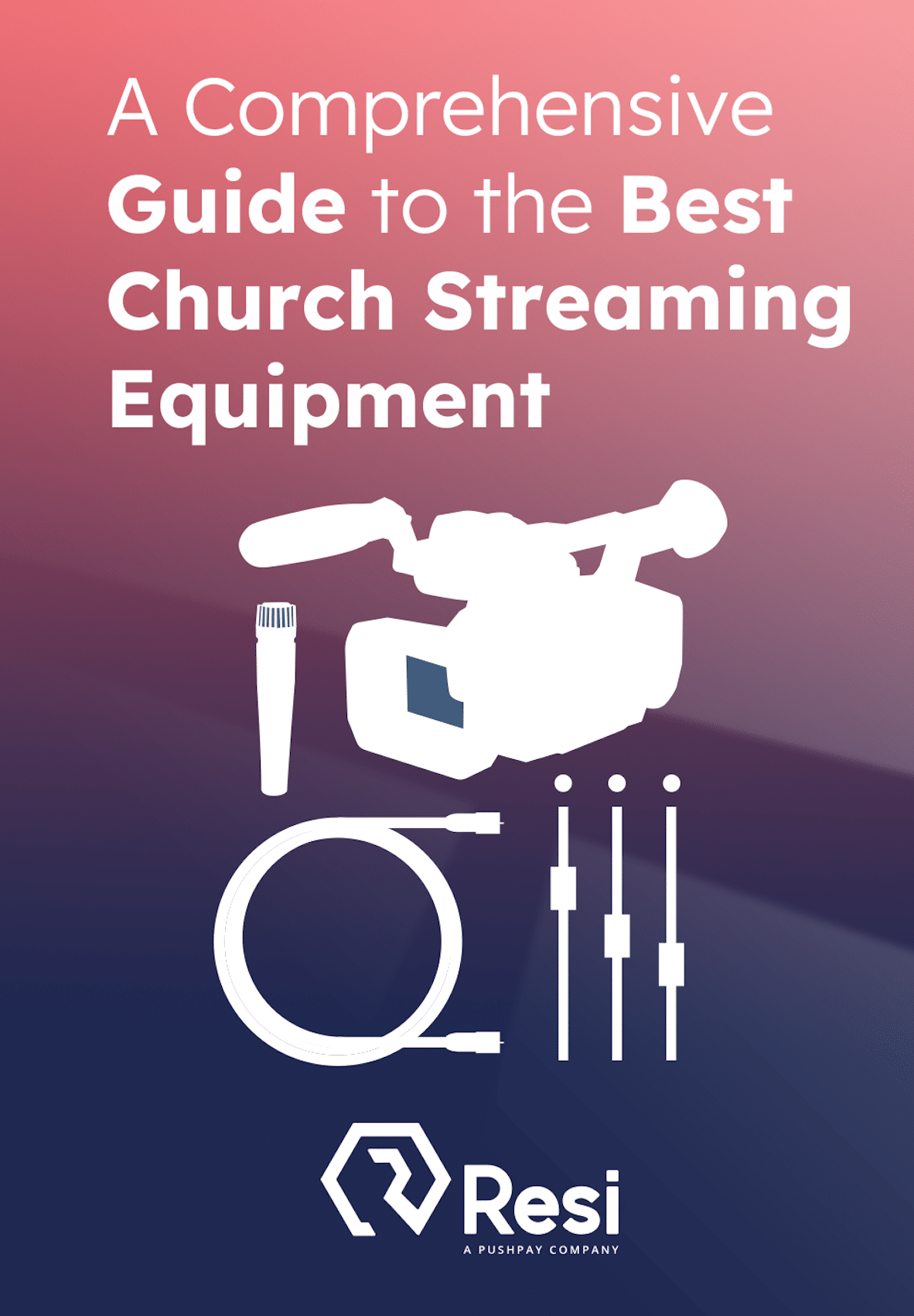
I canceled Christmas. True story.
I was not the best online pastor. I’ve discussed this often here on Resi’s blog. In many ways, I advise people to do the exact opposite thing I did as a pastor, and this is yet another shining example of how you should do what I say, not what I did.
One year, I was so busy doing digital ministry and ministry in general that I canceled the online volunteer Christmas party. This isn’t hyperbole: to date, it’s one of my biggest ministry regrets.
Let me contextualize the moment. The year was 2017. Our online ministry was flourishing, literally multiplying. Our English broadcasts reached record numbers for our church; 51% of our audience was outside our state. We were growing an online Spanish campus and an online deaf campus. Even our kids ministry was online—and this was years before COVID-19 pandemic. We’d even launched microsite campuses in different locations across the eastern seaboard. Microsites from Key West, FL, to New York City hosted church services in homes, workplaces, and bookstores.
I was filling the online pastor role, which was my passion. But, I had many other responsibilities for the church outside of online, including overseeing all weekend services across seven campuses. Being stretched too thin, the idea of creating an online Christmas party experience for our volunteers across the country felt like a low priority. I didn’t have time or energy to do anything to celebrate or honor my online volunteers. Instead, the physical ministry was taking all my attention. So, I canceled the Christmas party before it even had a chance.
Taking Back Monday: A Church Tech Director’s Guide to Saving Time
With this resource, you can take back time on Mondays and focus on what matters most—serving your ministry.
Download for free!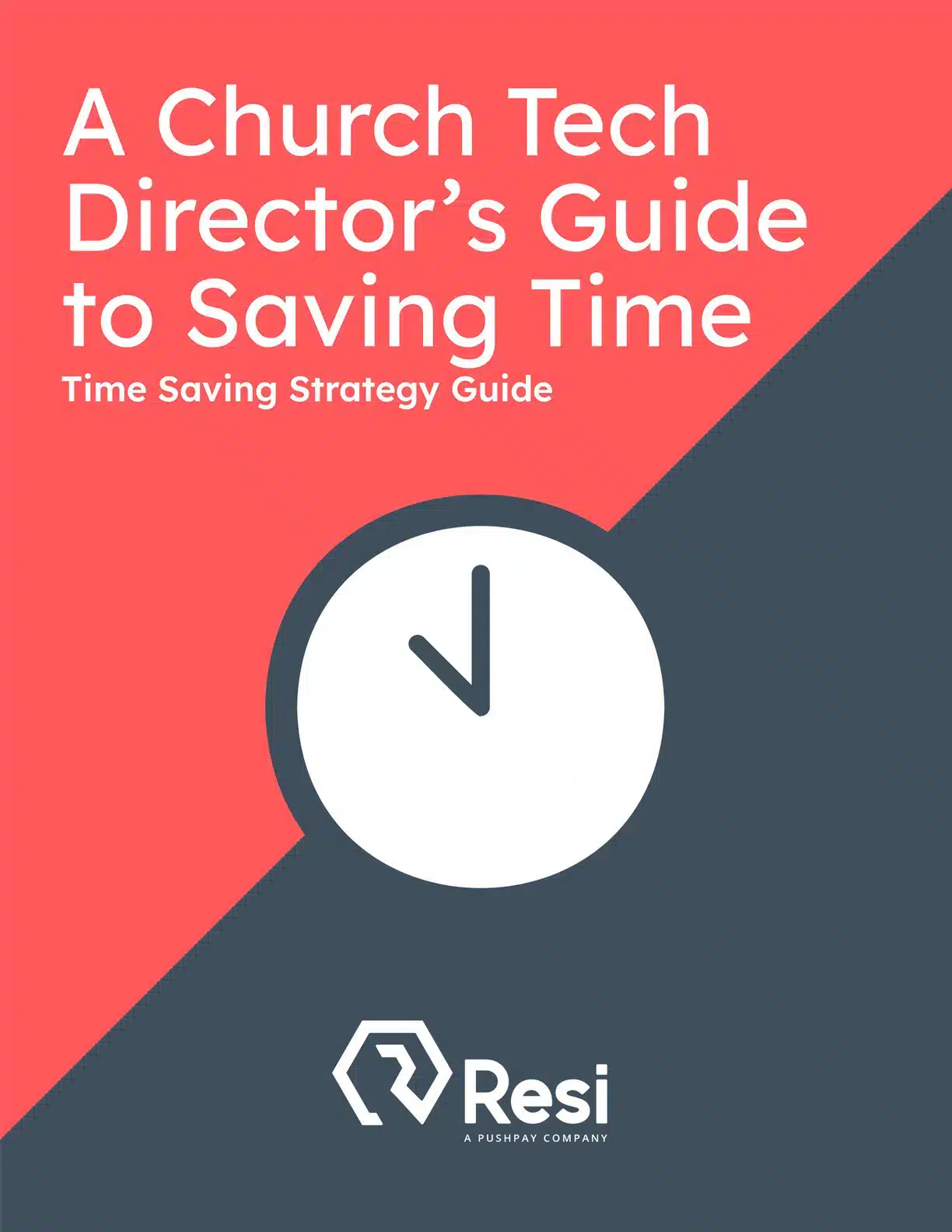
In my heart, I wanted to come back and do a “New Year’s Party” when things slowed down after we got past Christmas. But you know how that goes. Honoring, respecting, and celebrating the volunteers never happened. This is bad on many fronts.
Learn from Jay Kranda’s 15 years of Online Ministry Experience
I recently asked Jay Kranda, the Online Campus Pastor at Saddleback Church (and one of the OGs of Online Ministry), for any advice he could share on creating a healthy volunteer culture for online ministry. Here’s what he had to say:
The most significant way to recruit and keep volunteers online is to pastor them, care about them, and meet with them regularly. For example, have an all-volunteer Zoom meeting every 6-8 weeks. You hang out together, have fun as a team, and train them. If you have this regular meeting, then anytime someone is interested in serving, invite them to the next Zoom meeting. This simple rhythm will help you keep your existing volunteers and make it easy to onboard new ones. Plus, having a team is way more appealing to join. Most volunteers are looking for community.
This is why Jay has survived ministry healthily for 15 years. He’s not discussing checklists, to-do lists, or even membership classes. To create a healthy volunteer culture, hang out, have fun, and create community around serving online.
This becomes more pronounced since the majority, if not all, of your online volunteers will be serving remotely. In a traditional Sunday morning setting at a physical church, you engage with volunteers between services, sharing laughs and fostering connections. How does relationship-building evolve when volunteers serve from their homes rather than being present at the church? And how does it change when volunteers are located in different cities, states, countries, or even continents?
Churches are really great at creating community and establishing relationships in physical spaces. I challenge you to be even more intentional about establishing relationships with your volunteers digitally. Ultimately, the community you create with your volunteer team will spread from your volunteers into your digital church. They will not be any more relational digitally than you are. So, set the bar high!
From Sunday to Every Day
Download our FREE ebook to find out how your church can measure success in this engagement-centric culture.
Download for free!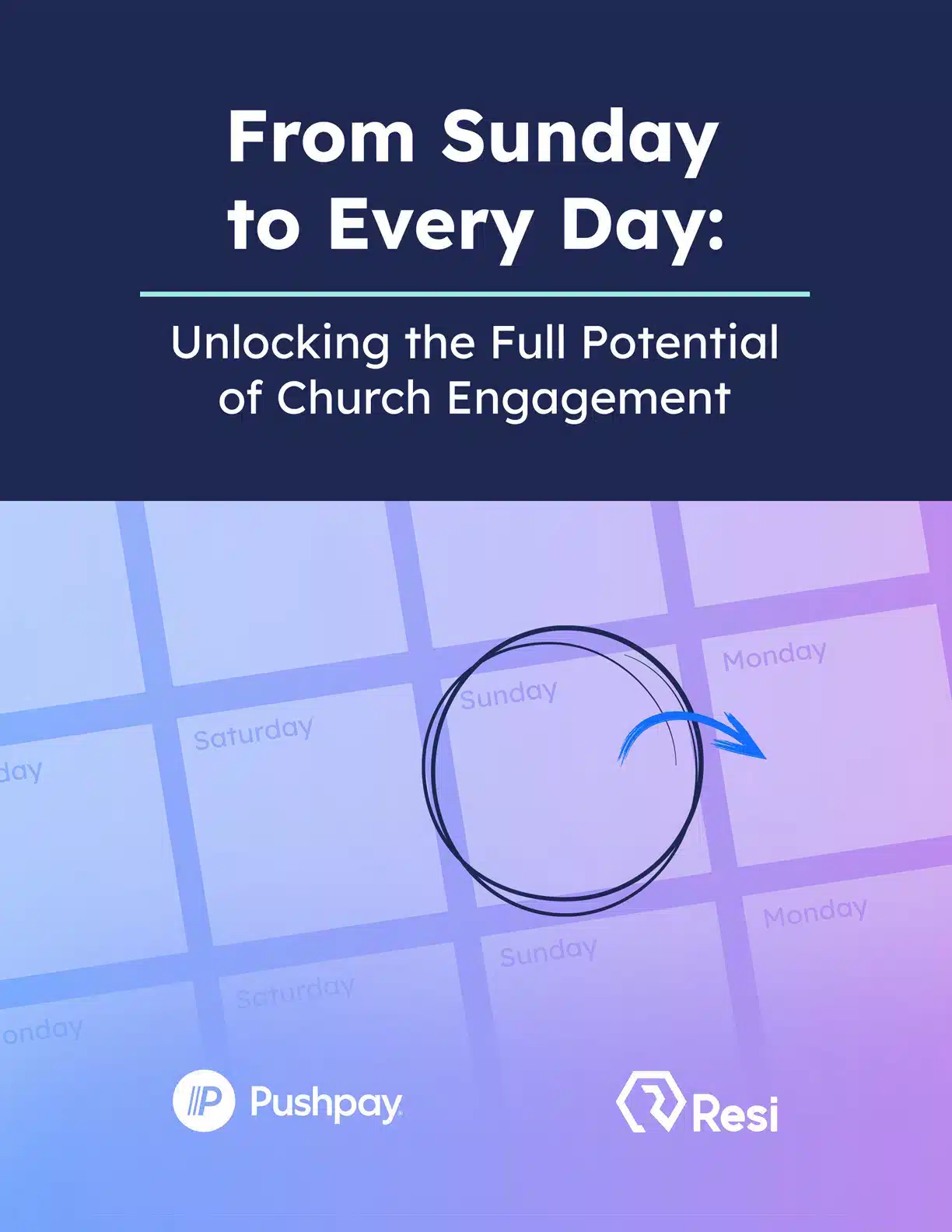
3 Things Remote Volunteers Are Looking For
- To Be Known – Community plays a crucial role in digital ministry. Whether your online volunteers are local or from afar, they’re not physically present in your church. This makes it vital to purposefully build relationships. Identify the platforms your volunteers frequent and engage with them there – be it Facebook, Instagram, or others. Stay connected by turning on notifications to interact with their social media posts and send encouraging DMs (ensuring proper accountability). Email isn’t enough; leverage platforms like Zoom to gather online. Focus on both individual connections and group activities to foster strong relationships with your volunteers. Remember, the more you invest in relational bonds with your volunteers, the more they’ll extend the same care to those they serve.
- To Be Empowered – Setting a high standard empowers volunteers and drives digital ministry growth. Micromanagement isn’t what volunteers seek. Online volunteers need vision, autonomy, and trust. Remote volunteers hold vast potential. Building trust, though gradual, is key. Conduct background checks, provide spiritual guidance, and empower them. Trust breeds empowerment in ministry. Effective online ministry — and ministry, in general — occurs when pastors support individuals in ministry, not when they solely perform tasks.
- To Be Encouraged – Jay Kranda proposed the idea of regular group meetings with volunteers, which is truly fantastic! These meetings provide a platform to uplift teams, acknowledge successes, address issues, share visions for the future, and reinforce the church’s core values, especially for remote volunteers. Keep it engaging by incorporating fun elements (Google “Zoom Games” for ideas). Encourage participants to bring Starbucks or desserts to enjoy together during the call (there’s no rule against eating during a Zoom call!). By engaging in activities as a team, you reinforce your unity. Additionally, consider creating dedicated communication channels on platforms like Slack, Discord, or a Facebook Group specifically for your online ministry volunteers.
Online ministry volunteers should immerse themselves in the digital community to truly grasp its essence. By engaging with this community, they can find encouragement, empowerment, a sense of belonging, and most importantly, feel valued when approached thoughtfully.
5 Ways to Build a Community Around Online Volunteering
I can’t reiterate this enough… for your church to move beyond just broadcasting services online and have a healthy, viable online ministry, your church will have to embrace the digital community. And to do that, most churches will have to experiment with different techniques. In Part 4 of The Digitally Resilient Church Online Event, Evan Connelly told a story where his online ministry experimented with running a Discord Server, and it was so successful that they opened up the Discord server to the entire church! Trying out some techniques with online volunteers is a simple way to start a digital community for your church.
Looking for a basic template for what a digital community can look like? Here are 5 ideas:
- Use Discord, Slack, or WhatsApp. These platforms have very good engagement features. Which do you choose? Which platform do your current volunteers utilize more regularly? That’s your choice. If the answer is none, Instagram has broadcast channels, or Facebook Groups may work, but you have to work much harder there…
- Allow, encourage, and facilitate two-way conversations. Allow your volunteers to speak. Ask questions and listen to the answers. Let them start conversations completely on their own.
- Not everything has to be about God or the church. Please don’t feel forced to Jesus-juke the conversation. Sometimes, let the meme just be funny. The community certainly needs to reinforce your church’s values, but don’t forget that it can be “fun,” too.
- Livestream often. The online pastor or leader should do live streams and open offices in the community at least once or twice a week. Post in advance when you’re doing it, and keep the schedule. And I’m not talking about live-streaming a church service! Jump in with your webcam on and talk. What are you learning in your quiet time? What is God teaching you? What did you have for breakfast? Doesn’t matter. Let people come by and just hang. Invite other pastors to come hang out as well.
Best Livestreaming Equipment
Discover what top-rated equipment we recommend adding to your church streaming toolkit.
Download for free!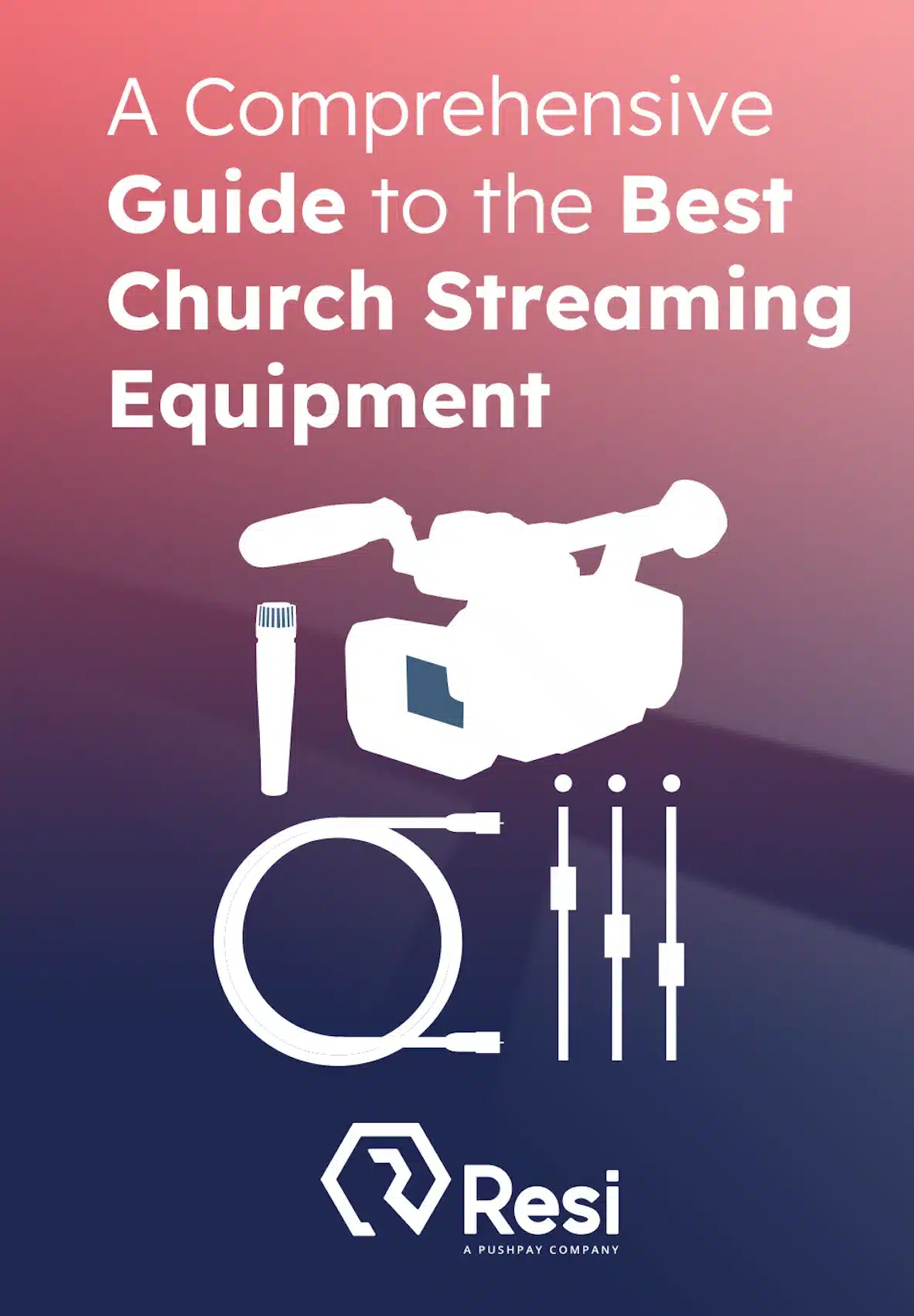
- Empower your volunteers. Frequently in digital ministry, I’ll have this conversation
Me: So, [Volunteer], what should we do?
Volunteer: Lays out an incredible idea that there’s no way I have time to execute.
Me: That’s a great idea. Let’s do it together. How can I help you get started? Who else can we involve?
Your church has so much digital potential stored up right now in unrealized ideas from your volunteers.
Now, you’re beginning to see why canceling the Online Christmas Party was such a bad idea.Given another chance, I could have empowered numerous online volunteer leaders to organize the party, who likely would have appreciated the chance to contribute to the team. Instead of a single year-end event for expressing gratitude, invest in establishing a consistently nurturing environment for your digital volunteers. Make them feel valued, empowered, and motivated.
Online volunteers, even remote ones, have the potential to be more than friends or family. They potentially can be full-on teammates of yours for online ministry. Treat them and respect them as such.


